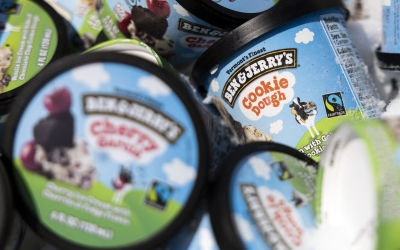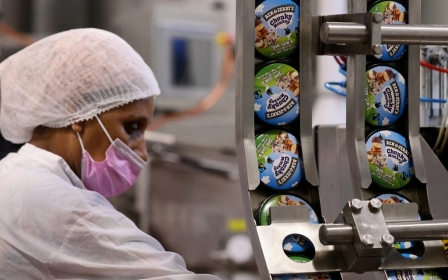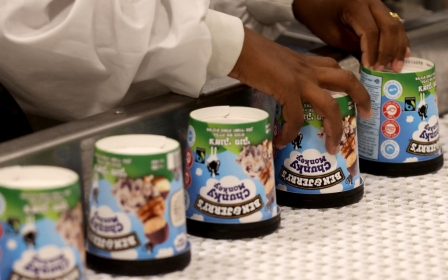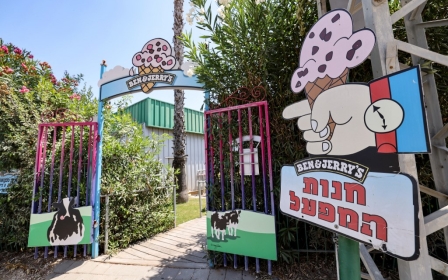Ben & Jerry's: Israel launches 'long-term pressure' campaign against ice cream company

Israel has launched a special task force in order to apply "long-term pressure" to ice cream company Ben & Jerry's, after it announced earlier this month that it would no longer be selling its products in illegal settlements in the occupied Palestinian territories.
According to a classified Israeli foreign ministry cable seen by the American news site Axios, the task force aims to lobby politicians and organisations - primarily in the US - to try and apply pressure on the company to reverse its decision before the policy comes into effect in 18 months' time.
'We need to make use of the 18 months that are left until the decision comes into force and try to change it'
- classified Israeli foreign ministry cable
“We need to make use of the 18 months that are left until the decision comes into force and try to change it," said the cable.
"We want to create long-term pressure on [owner] Unilever and Ben & Jerry's by consumers, politicians, and in the press and social media in order to lead to a dialogue with the companies."
In a statement on 19 July, Ben & Jerry's said it was "inconsistent with our values" to continue selling in the illegal settlements, adding that they "hear and recognise the concerns shared with us by our fans and trusted partners".
The company said it would "stay in Israel through a different arrangement", however.
'New form of terrorism'
The move has provoked a wave of fury from Israel and pro-Israel groups, with Israeli President Isaac Herzog denouncing it as a "new form of terrorism" and Prime Minister Naftali Bennett promising Israel would use "all tools at its disposal" to fight the decision.
In the classified document, which was sent on 22 July, instructions were given to Israeli diplomats to encourage Jewish groups and pro-Israel groups to organise demonstrations outside of Ben & Jerry's and Unilever offices and try and apply pressure on investors and distributors.
It said that diplomats should push for statements publicly condemning the companies and “encourage public protests in the media and directly with key executives in both companies".
It added that the decision to discontinue sales in the occupied territories "smells like extreme cancel culture" and said it was motivated by the Boycott, Divestments and Sanctions (BDS) campaign, which was, in part, "motivated by antisemitism".
The move to end sales was hailed by pro-Palestinian groups, with the official BDS campaign saying it welcomed the decision, though adding that it hoped the company would "end all operations in apartheid Israel".
However, in a statement on Tuesday, the CEO of Unilever said his company did not support BDS.
"Unilever rejects completely and repudiates unequivocally any forms of discrimination or intolerance. Antisemitism has no place in any society," CEO Alan Jope wrote in a letter to several Jewish organisations, including the Anti-Defamation League (ADL).
"We have never expressed any support for the BDS movement and have no intention of changing that position."
Ben & Jerry's has long sought to portray itself as a supporter of liberal causes and has issued statements supporting the Black Lives Matter movement and other progressive movements on social media.
However, it went silent in mid-May after Israel launched air strikes on the Gaza Strip.
Users on social media criticised the company for presenting itself as champions of equality while ignoring the plight of the Palestinians.
The 11-day Israeli military operation on the Gaza Strip in May resulted in the killing of at least 248 Palestinians and the destruction of a number of buildings, including schools, medical centres and media offices.
Twenty nine Palestinians were killed in the occupied West Bank by Israeli forces. Thirteen Israelis were also killed by rockets fired from Gaza.
Middle East Eye propose une couverture et une analyse indépendantes et incomparables du Moyen-Orient, de l’Afrique du Nord et d’autres régions du monde. Pour en savoir plus sur la reprise de ce contenu et les frais qui s’appliquent, veuillez remplir ce formulaire [en anglais]. Pour en savoir plus sur MEE, cliquez ici [en anglais].





